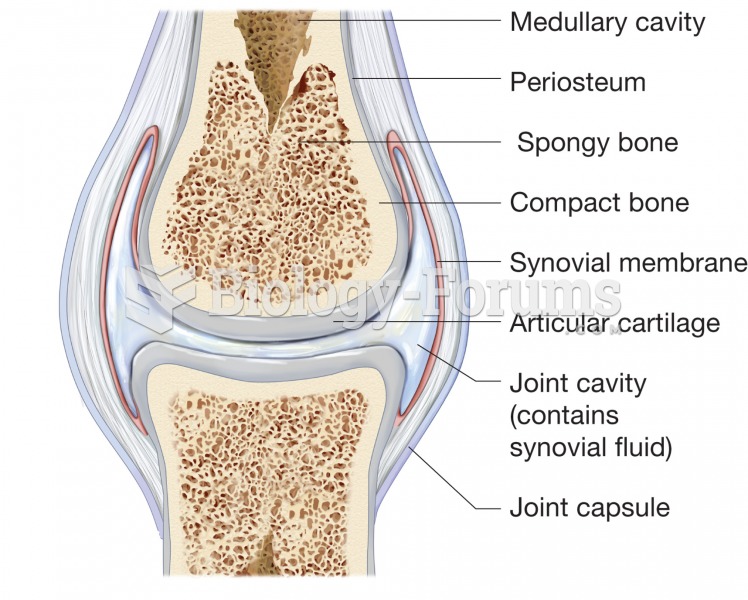|
|
|
According to the FDA, adverse drug events harmed or killed approximately 1,200,000 people in the United States in the year 2015.
Colchicine is a highly poisonous alkaloid originally extracted from a type of saffron plant that is used mainly to treat gout.
More than one-third of adult Americans are obese. Diseases that kill the largest number of people annually, such as heart disease, cancer, diabetes, stroke, and hypertension, can be attributed to diet.
One way to reduce acid reflux is to lose two or three pounds. Most people lose weight in the belly area first when they increase exercise, meaning that heartburn can be reduced quickly by this method.
Each year in the United States, there are approximately six million pregnancies. This means that at any one time, about 4% of women in the United States are pregnant.
 Traction is the application of a pulling force to maintain bone alignment during fracture healing. D
Traction is the application of a pulling force to maintain bone alignment during fracture healing. D
 Common skin signs are often evidence of an illness or disorder. An erosion or ulcer is an eating or ...
Common skin signs are often evidence of an illness or disorder. An erosion or ulcer is an eating or ...





